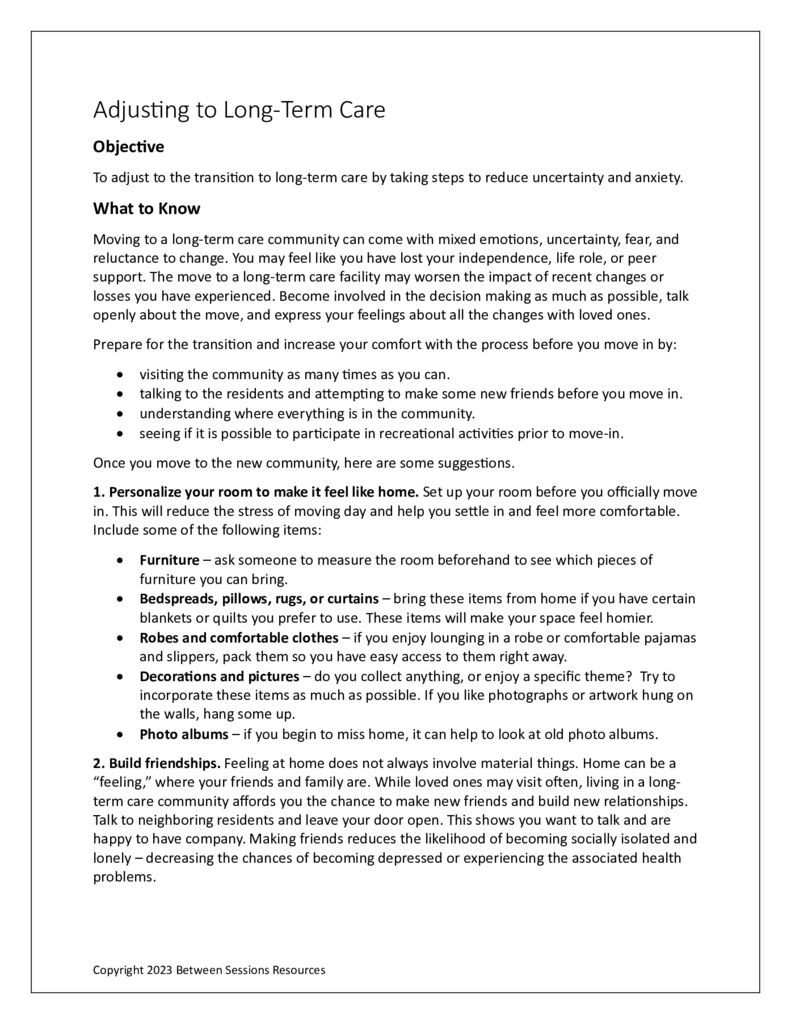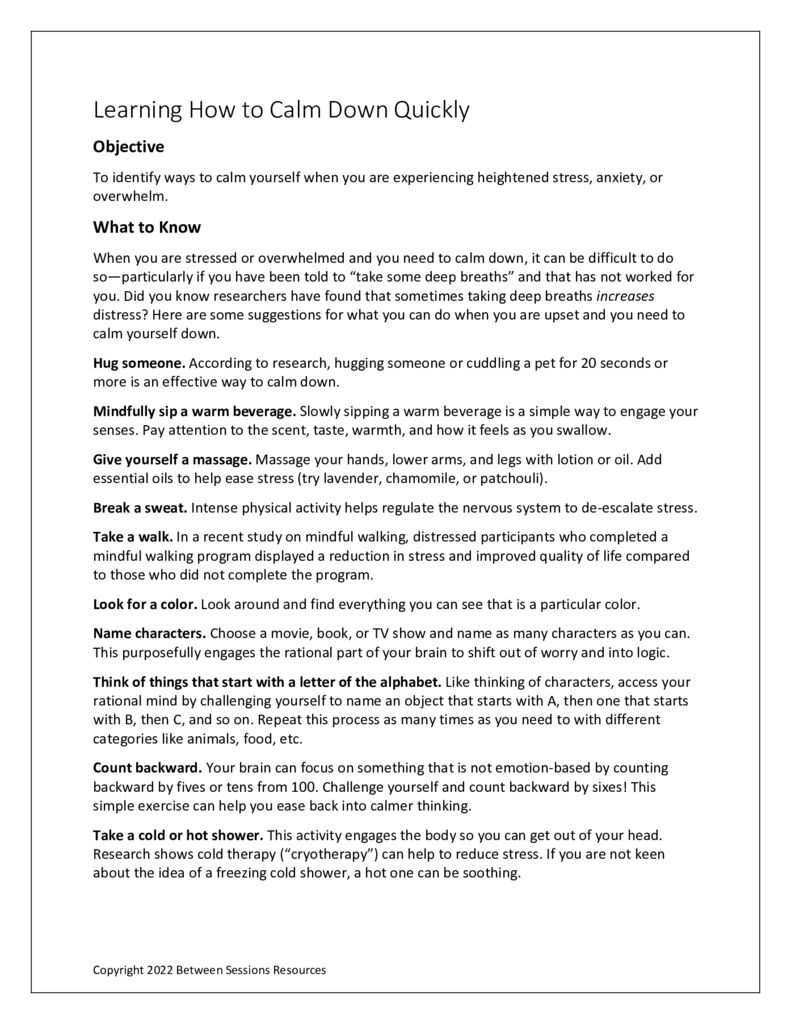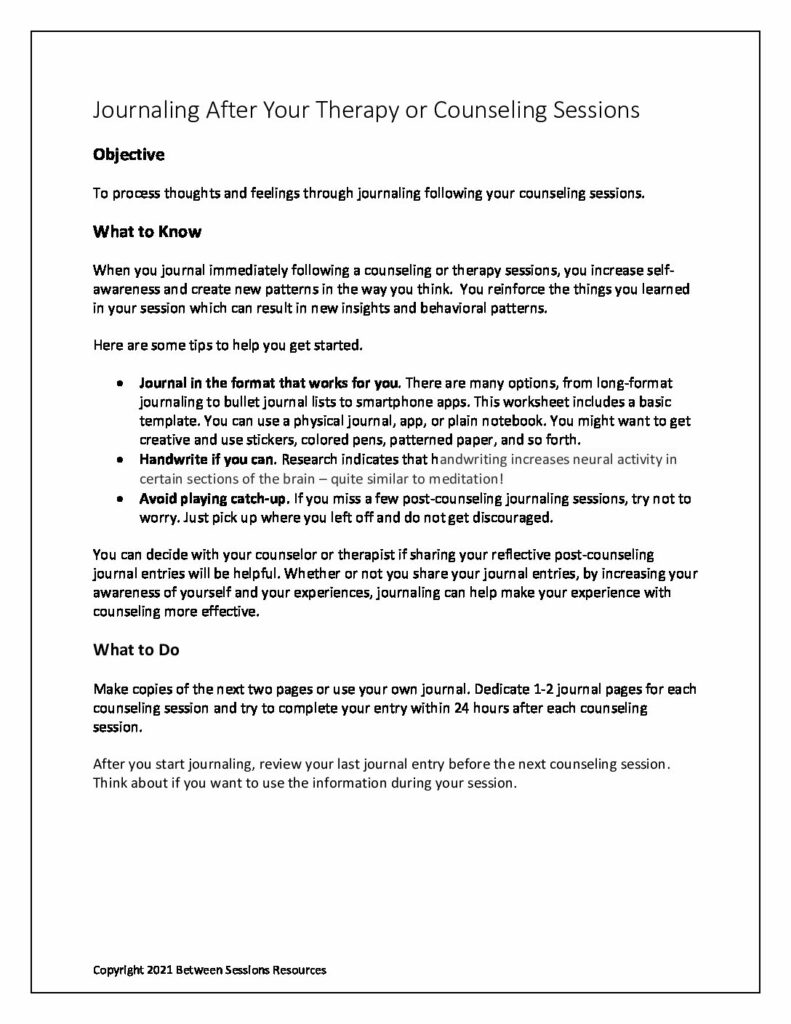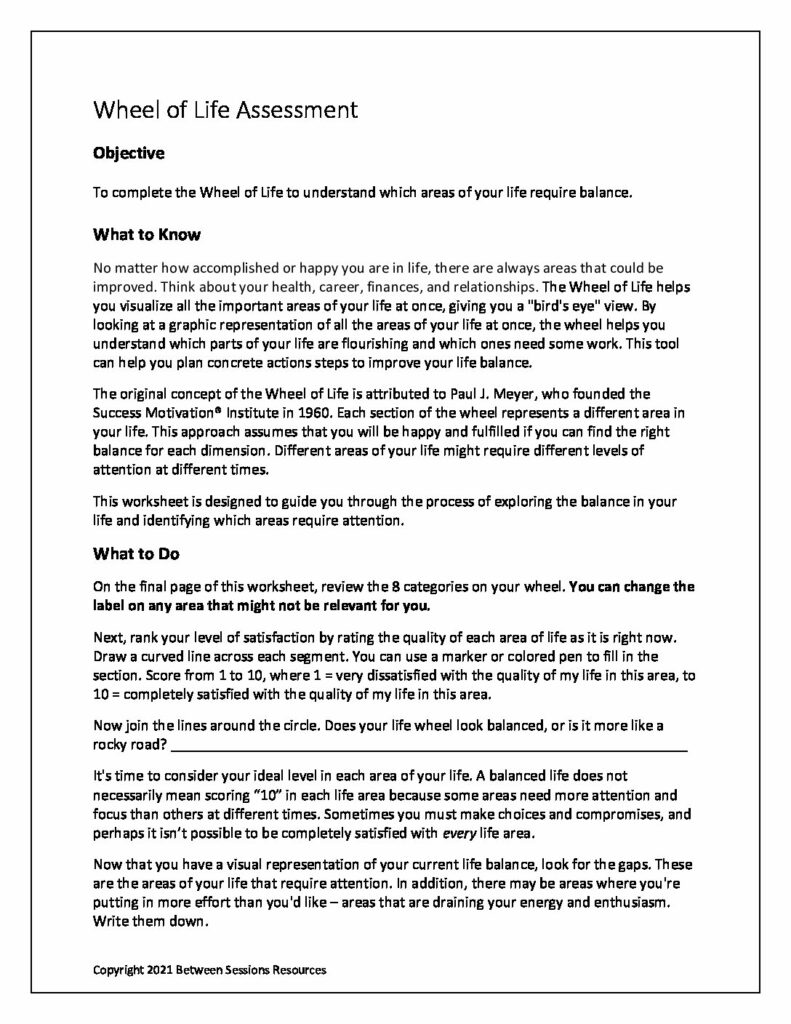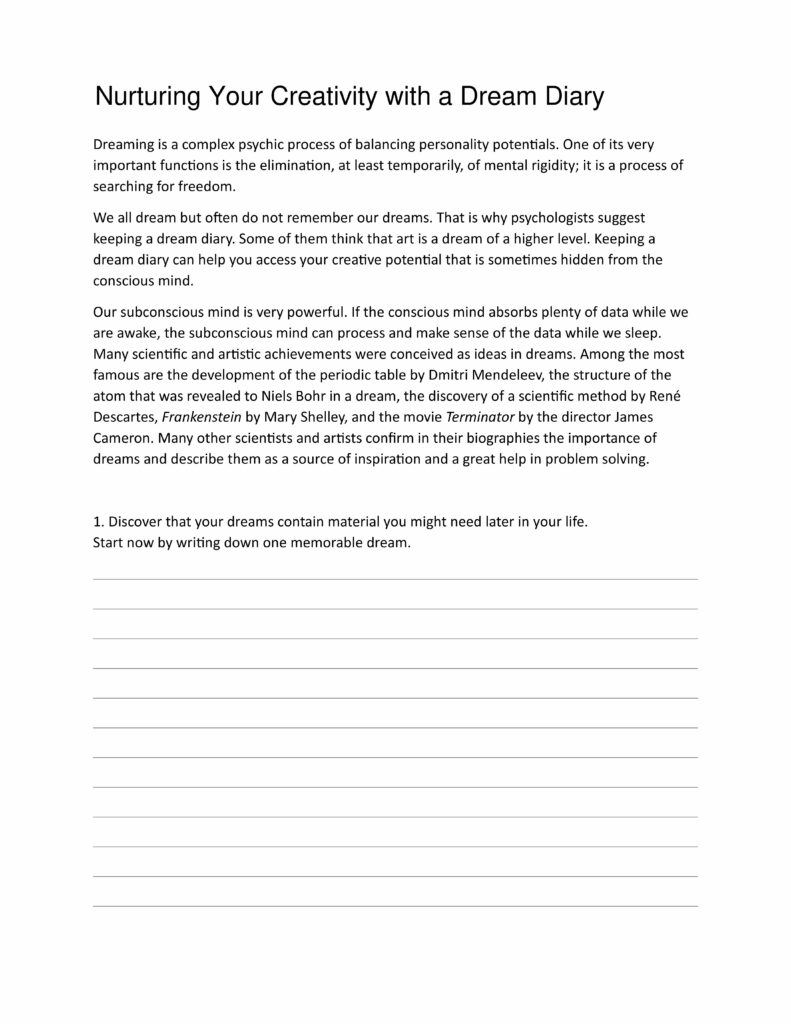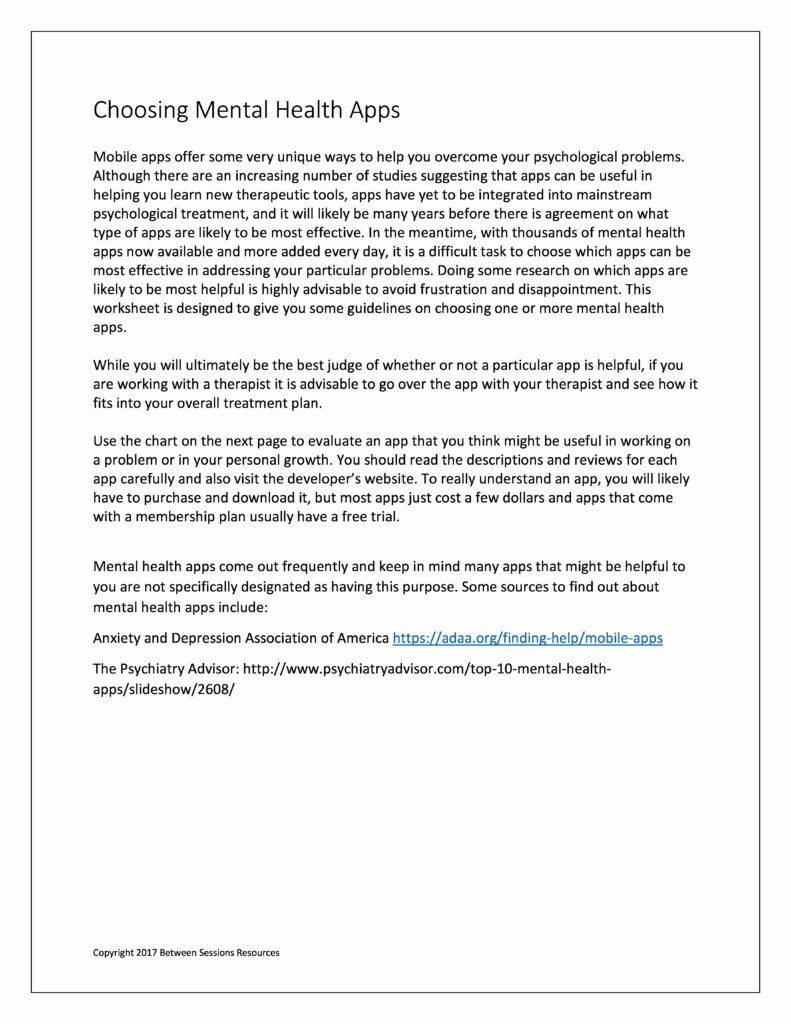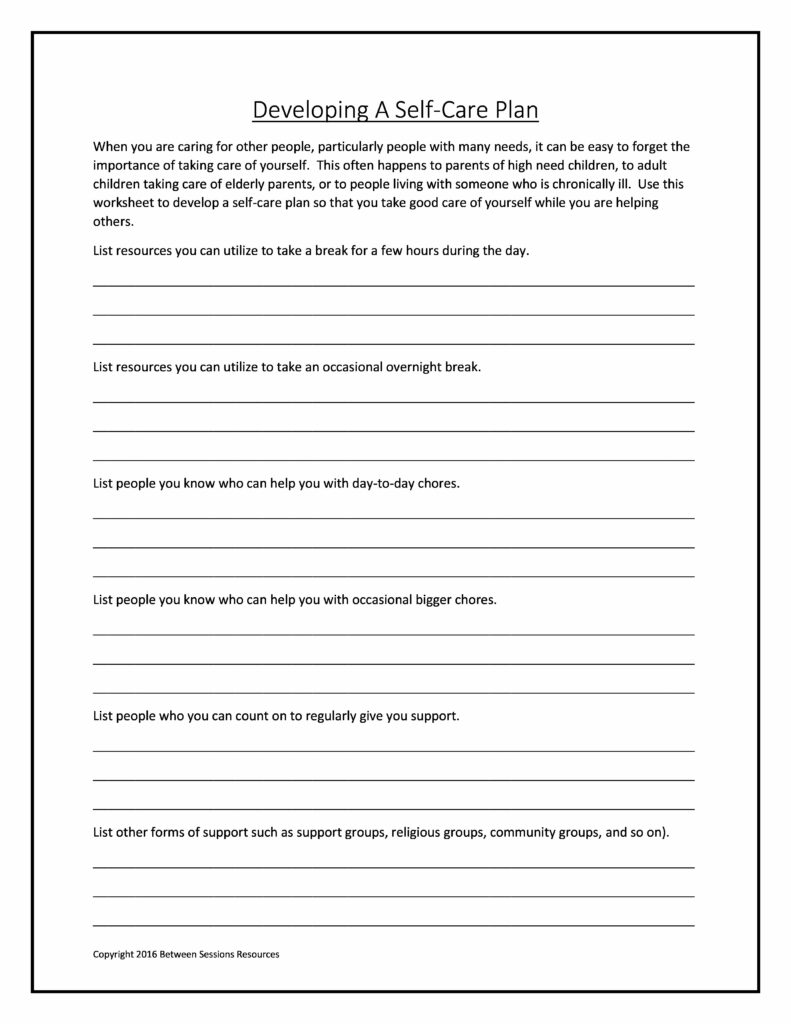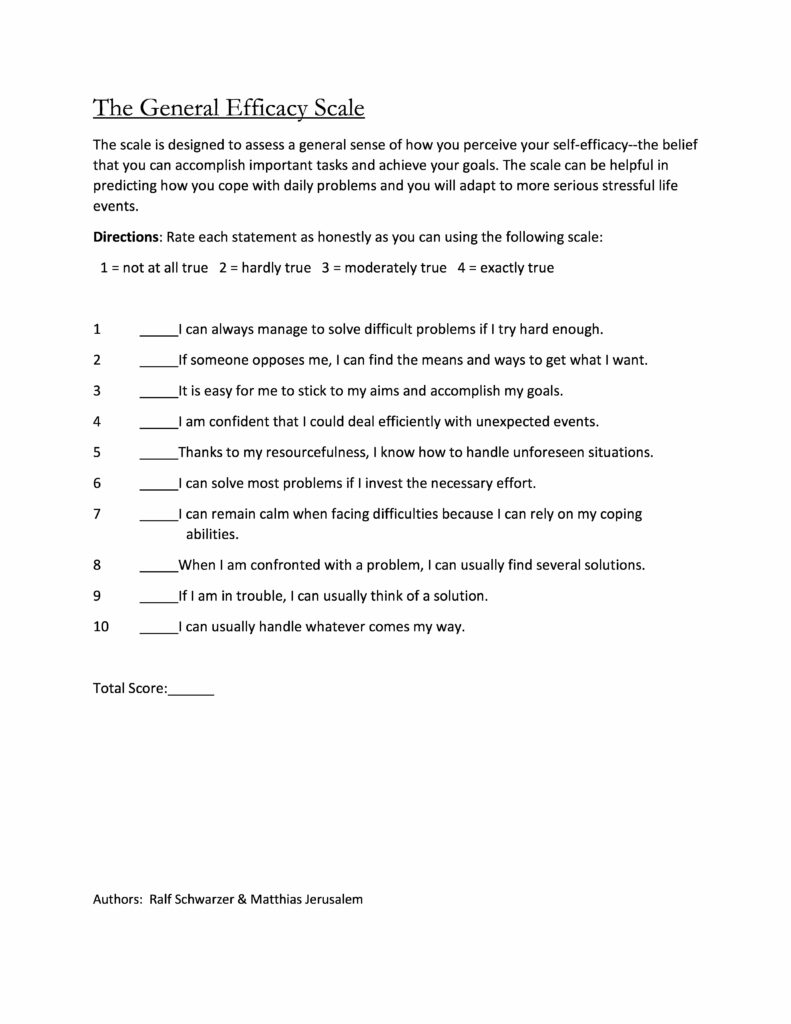This worksheet is intended to help people entering a long-term care community deal with fear, anxiety, and the mixed emotions that can accompany this transition. This worksheet gives suggestions to help deal with the understandable anxiety and tasks to complete to address the practical aspects of the move. (0223, elder care, transitions, elderly)
This simple journal will make every session more meaningful! Within 24 hours after each session, the client is prompted to create notes on 8 areas about what happened in the session, including important things discussed in-session; feelings (expressed and unexpressed), unexpressed thoughts, and homework assignments. Then, before each new session, the client is prompted to respond to quotes about their thoughts, feelings, creativity, and much more. There are also two reoccurring rating scales that ask clients to rate their progress and assess their mood. (1022, journal, homework assignments)
This worksheet gives people simple ideas to turn off the “fight or flight” response. A chart is included to help people keep track of which techniques are most effective. (0822, anxiety, calming, self-calming)
This worksheet is intended to help people utilize the technique of journaling as a way to reinforce what was learned in therapy. (insight, therapy techniques, journaling, 0821)
The Wheel of Life helps people visualize all the important areas of their lives at once, giving them a “bird’s eye” view. By looking at a graphic representation of all the areas of their lives at once, the wheel helps people understand which parts of their lives are flourishing and which ones need some work. (0821, life coaching, balance)
This worksheet is designed to help teens see the value of responsible behavior (0721, responsibility, family issues)
This worksheet is designed to help people evaluate the potential helpfulness of mental health apps. (103117)
This worksheet is designed to help people take better care of themselves. It will be particularly useful for those spending a great deal of time caring for others. (caregivers, self-care, emotional help, wellness, DBT, 0516)
This simple 5-minute assessment can be used to assess self-efficacy, a measure of whether a person perceives that he can accomplish tasks and achieve goals. Lower scores may suggest a vulnerability to depression or other mental health problems. Higher scores indicate greater resiliency.

